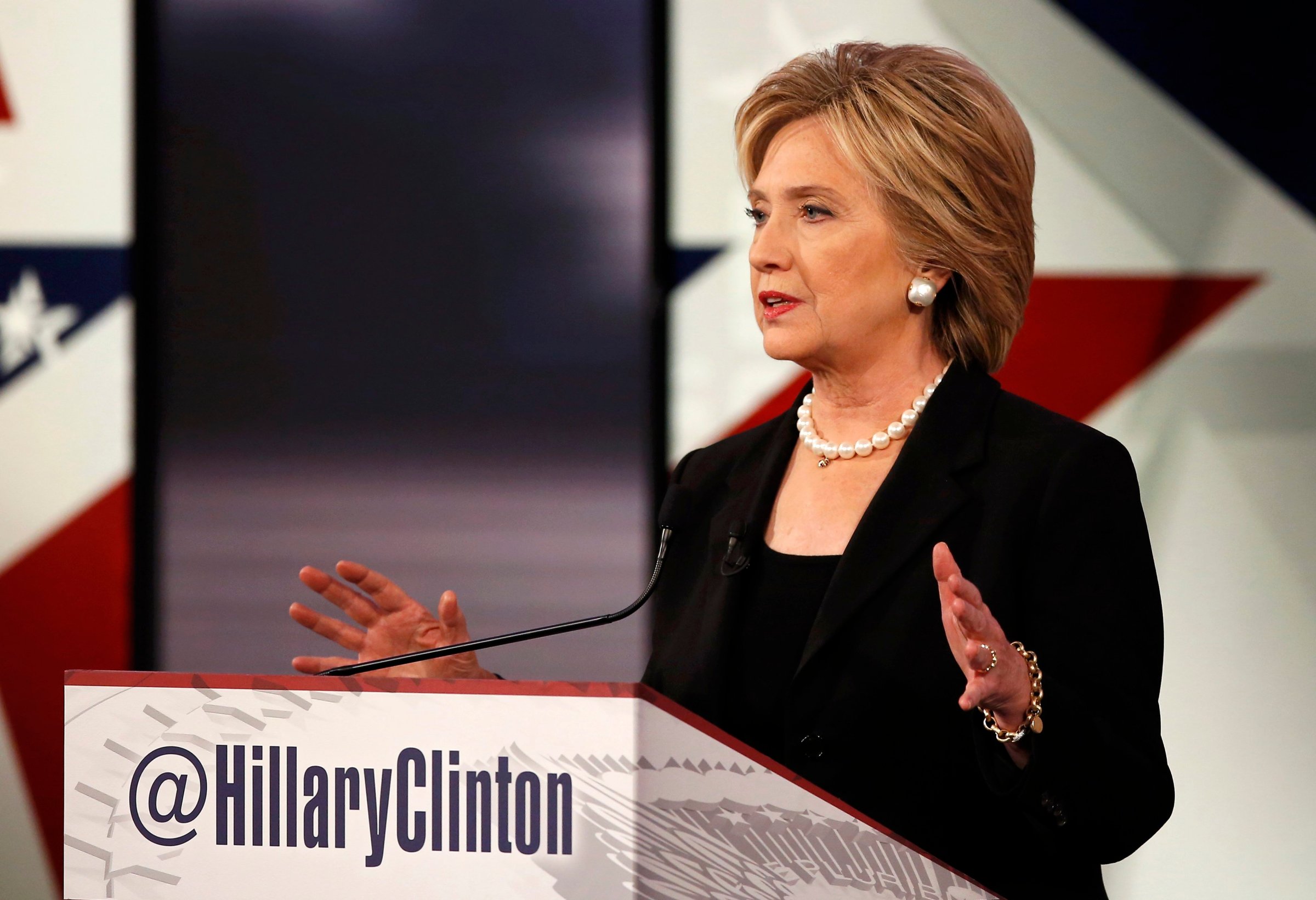
Foreign policy is the topic of the moment for the 2016 candidates, given the horror of Paris. But what interested me most about Saturday’s Democratic debate was how Hillary Clinton came under attack from both Bernie Sanders and Martin O’Malley over whether she had the gumption to stand up to Wall Street, given that she is the Democratic candidate of choice for the financial lobby and has received millions of dollars in campaign donations from financiers. I thought one of the most pointed moments in any Democratic debate so far was when O’Malley said he wouldn’t have either Larry Summers or Bob Rubin on his economic advisory team, as Bill Clinton did, given their role in some of the policies that created and exacerbated the financial crisis of 2008. I keep waiting for Hillary to answer that challenge head on and say, “neither will I.” But so far, she hasn’t.
That’s important because the legacy of Clintonomics, meaning specifically Bill Clintonomics, still needs to be addressed. Bill Clinton put the final nail in the coffin of Glass-Steagall, the Depression Era legislation that separated commercial and investment banking, something that both Sanders and O’Malley would like to see reinstated. I would too, though you can make a fair argument, as Hillary does, that Glass-Steagall wouldn’t have prevented the 2008 meltdown and that the problems within our financial system go way beyond just too big to fail banks. They include shadow banks, insurance companies, money market funds and like.
But that’s not an argument for not limiting the power of the biggest banks, which are bigger and more powerful than before the crisis. And it also doesn’t address the rest of the Summers-Rubin legacy, namely shifts in the tax and executive compensation structure that led to perverse incentives for corporate executives who could now receive pay in options, and manipulate the value of those options by doing more and more share buybacks (which exacerbate inequality) rather than investing in Main Street.
Hillary has said she would look closely at buybacks, but Sanders and others like Massachusetts senator Elizabeth Warren would like to see them make illegal as they were before 1983. One thing that is becoming clearer and clearer in any campaign discussion of Wall Street is that Hillary is going to have to clearly address her husband’s economic legacy, and clearly state if and how, she’d address the things that he and his advisors did to create a situation in which inequality is growing, wages are stagnating, and growth is more dependent on financial sugar highs than on a healthy Main Street economy.
I think it would be incredibly powerful if Hillary came out and took on that issue directly, and said what her version of Clintonomics would look like, rather than letting Sanders and O’Malley put her on the defensive. It would also answer the question of whether she is truly willing to go against the powerful financial lobby should the country need her to, or not.
More Must-Reads from TIME
- Donald Trump Is TIME's 2024 Person of the Year
- Why We Chose Trump as Person of the Year
- Is Intermittent Fasting Good or Bad for You?
- The 100 Must-Read Books of 2024
- The 20 Best Christmas TV Episodes
- Column: If Optimism Feels Ridiculous Now, Try Hope
- The Future of Climate Action Is Trade Policy
- Merle Bombardieri Is Helping People Make the Baby Decision
Contact us at letters@time.com